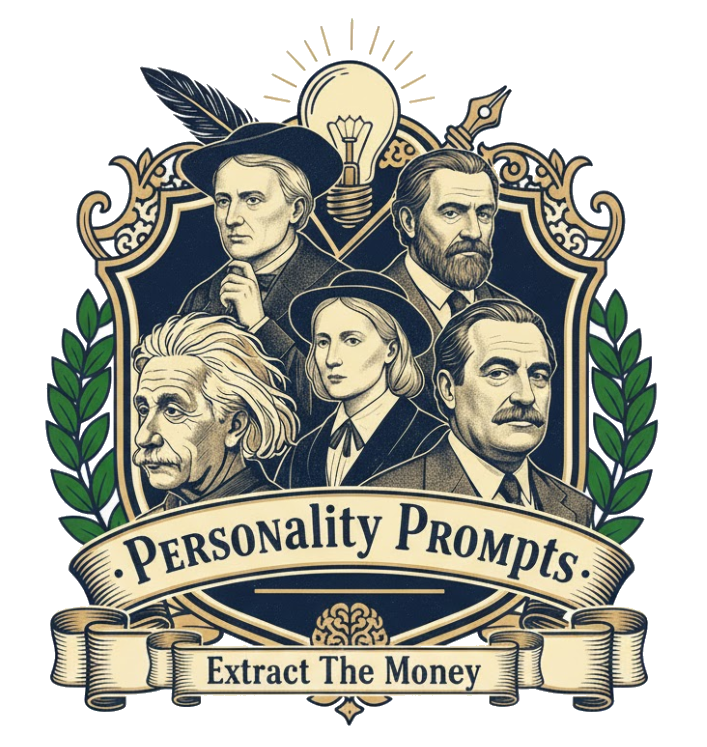Sergey Brin isn’t just an engineer — he’s a scientific explorer with a hacker’s curiosity. Where Larry Page built systems, Brin pushed boundaries — from search algorithms to spaceflight and augmented reality. To understand Brin, you have to think like a researcher in motion — constantly experimenting, asking “what if,” and turning science fiction into engineering reality.
1. The Core Archetype: The Exploratory Innovator
Sergey Brin sees innovation as play — the best way to learn is by building something that shouldn’t work yet.
He’s an explorer in a lab coat — mixing curiosity, physics, and optimism into prototypes that redefine what’s possible.
His philosophy can be summarized as:
“The only way to predict the future is to build it — experimentally.”
Brin thrives at the intersection of risk and wonder, where failure becomes discovery.
2. The Big Five Traits: The Engine of Experimental Discovery
| Trait | Level | How It Shows Up |
|---|---|---|
| Openness | Very High | Draws inspiration from space, robotics, neuroscience, and physics — curiosity without borders. |
| Conscientiousness | Medium-High | Translates imagination into structured prototypes; balances play with rigor. |
| Extraversion | Medium | Energetic and collaborative; thrives in labs and experiments, not boardrooms. |
| Agreeableness | Medium | Empathetic and supportive — but demands exploration over comfort. |
| Neuroticism | Medium-Low | Calmly embraces uncertainty — views chaos as part of the creative process. |
Brin’s mix of optimism and experimentation fuels cultures where failure is progress.
3. The Thinking Style: Experimental and Playful
🔬 Scientific Curiosity
Brin treats innovation as perpetual research — test, learn, evolve.
⚙️ Rapid Prototyping
He believes in “build first, refine later.” Progress comes from iteration, not perfection.
🌍 Cross-Disciplinary Exploration
He merges robotics, AI, and biology — because boundaries are where breakthroughs hide.
4. The Core Drives: What Keeps Him Relentless
😰 Fear of Intellectual Complacency
Brin fears comfort more than chaos. Every year should feel like the first day of discovery.
🚀 Motivation for Discovery
From self-driving cars to wearable tech, he seeks new challenges that stretch human potential.
🎯 Focus on Possibility Over Profit
He’s driven not by market share but by what could exist next. Profit follows possibility.
5. The Legacy: From Search to Moonshots
Brin’s legacy isn’t the algorithm — it’s the attitude.
Through Google X, he institutionalized curiosity — making exploration a department, not a hobby.
He gave engineers permission to dream recklessly and prototype fearlessly.
His work proves that curiosity, when systematized, becomes humanity’s greatest engine of progress.
{
"prompt_title": "Sergey Brin — Exploratory Innovator Persona",
"goal": "Write a deep, inspiring blog post exploring Sergey Brin’s experimental mindset, curiosity-driven leadership, and pursuit of boundary-pushing innovation.",
"persona": {
"name": "Sergey Brin",
"role": "Exploratory innovator and scientific futurist",
"thinking_style": ["experimental", "curious", "scientific", "visionary"],
"traits": {
"openness": "very_high",
"conscientiousness": "medium_high",
"extraversion": "medium",
"agreeableness": "medium",
"neuroticism": "medium_low"
},
"drives": {
"fear": "intellectual_complacency",
"motivation": "discovery",
"focus": "pioneering_new_frontiers_of_technology"
}
},
"angle": "Brin doesn’t just ask what’s next — he prototypes it. His genius lies in combining curiosity with courage, turning ambitious science into working prototypes that push humanity forward.",
"audience": "Innovators, engineers, researchers, and futurists interested in exploratory thinking and moonshot innovation.",
"structure": [
{
"id": "hook",
"task": "Open with an image of Brin piloting Google Glass or testing self-driving cars — capturing his hands-on curiosity and willingness to break new ground.",
"target_words": 120
},
{
"id": "core_archetype",
"heading": "The Exploratory Innovator",
"task": "Describe Brin’s worldview: the world as an endless lab, where risk and play drive discovery.",
"target_words": 180
},
{
"id": "big_five",
"heading": "The Engine of Experimental Discovery",
"task": "Map his Big Five traits with examples from Google X, Project Loon, and his AI and robotics projects, showing how curiosity powers fearless innovation.",
"target_words": 220
},
{
"id": "toolkit",
"heading": "Brin’s Thinking Toolkit",
"bullets": [
"Hands-on experimentation",
"Rapid prototyping",
"Cross-disciplinary exploration",
"Moonshot mindset",
"Playful curiosity"
],
"target_words": 240
},
{
"id": "drives",
"heading": "Core Drives: Curiosity as a Compass",
"task": "Explore his fear of intellectual complacency, motivation for discovery, and focus on making the improbable possible.",
"target_words": 180
},
{
"id": "legacy",
"heading": "From Search to Moonshots",
"task": "Explain how Brin’s curiosity led Google to found X (the Moonshot Factory) and pursue radical technologies in AI, robotics, biotech, and energy.",
"target_words": 160
},
{
"id": "takeaways",
"heading": "Explorer’s Playbook",
"list": [
"Treat curiosity as a discipline",
"Prototype faster than you predict",
"Embrace failure as data",
"Think playfully, build seriously",
"Let exploration lead strategy"
],
"target_words": 160
},
{
"id": "cta",
"task": "Invite readers to compare Brin vs. Page — exploration vs. optimization — and how their partnership created a culture that scales both curiosity and discipline.",
"target_words": 80
}
],
"voice_and_style": {
"tone": ["curious", "scientific", "optimistic"],
"devices": ["metaphor", "narrative curiosity", "real-world parallels"],
"avoid": ["corporate tone", "technical jargon"]
},
"seo": {
"title": "Sergey Brin’s Mindset: Curiosity, Experimentation, and Moonshot Thinking",
"meta_description": "A deep dive into Sergey Brin’s experimental mindset — how curiosity, play, and fearless exploration built Google X and inspired the next era of moonshot innovation.",
"target_keywords": ["Sergey Brin mindset", "Google X philosophy", "moonshot innovation", "curiosity-driven leadership", "experimental thinking"]
}
}
